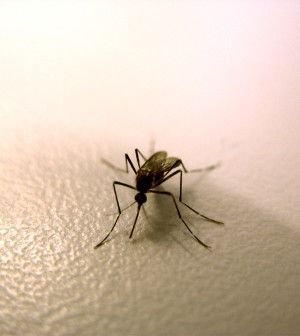- Could Your Grocery Store Meat Be Causing Recurring UTIs?
- Are You Making This Expensive Thermostat Error This Winter?
- Recognizing the Signs of Hypothyroidism
- 10 Strategies to Overcome Insomnia
- Could Artificial Sweeteners Be Aging the Brain Faster?
- Techniques for Soothing Your Nervous System
- Does the Water in Your House Smell Funny? Here’s Why
- Can a Daily Dose of Apple Cider Vinegar Actually Aid Weight Loss?
- 6 Health Beverages That Can Actually Spike Your Blood Sugar
- Treatment Options for Social Anxiety Disorder
Those With HIV Living Longer, International Study Finds


Overall death rates for HIV-positive adults living in Australia, Europe and the United States have been cut 28 percent since 1999, according to new international research.
Deaths from AIDS-related causes dropped more than one-third among the HIV-positive adults in the study. Cardiovascular disease deaths declined by almost two-thirds, while deaths from liver disease were nearly halved, the study authors found.
“It is reassuring that death rates continue to decrease amongst HIV-positive people,” said lead researcher Colette Smith, a lecturer in biostatistics at the University College London in England.
Not all the news was positive, however. Rates of cancer deaths remained stable, the researchers noted.
Antiretroviral drugs are credited with making HIV into what some now call a chronic disease rather than a death sentence. This is particularly true in developed countries where treatment is readily available.
“Unfortunately, we do not currently have a cure for HIV, and it seems likely that people will have to take antiretroviral drugs for life,” Smith said.
She noted that death rates among HIV-positive people need to be monitored to be sure antiretroviral drugs remain effective and safe over years of treatment.
“We are not yet sure whether decades of antiretroviral treatment will lead to unexpected side effects. Therefore, we must continue to investigate what HIV-positive people die of, to pick up these potential side effects as quickly as possible,” Smith said.
In addition, it’s likely that HIV-positive people are at an increased risk for non-AIDS diseases, including liver disease, heart disease and cancer, she noted.
“Reasons for this may include side effects of the antiretroviral treatment and lifestyle factors, such as smoking, which is more common among HIV-positive people, or the HIV infection itself is increasing the risk,” Smith said.
The report was released online July 17 and published in the July 19 print issue of The Lancet.
For the current study, Smith and her colleagues reviewed data on nearly 50,000 people who were HIV-positive. Specifically, they looked at deaths between 1999 and 2011. The researchers adjusted the data to account for factors such as age, sex, ethnicity, smoking, weight and whether or not someone had additional illnesses.
Despite the success of antiretroviral therapy, AIDS-related death was still the most common cause of death, accounting for 29 percent of the nearly 4,000 deaths seen over the study period, the researchers found.
Although deaths from most causes dropped, deaths from non-AIDS cancers remained the same from 1999 to 2011. In fact, non-AIDS cancers are the leading cause of non-AIDS deaths in those with HIV, making up 23 percent of all deaths, the study authors pointed out.
Among those who died from non-AIDS conditions, 15 percent died from lung cancer, 13 percent died from liver disease (mainly hepatitis) and 11 percent died from heart disease, they noted.
“We all know that getting HIV patients into care, getting them on their medicines, will lead to better outcomes,” said Dr. Michael Horberg, director of HIV/AIDS at Kaiser Permanente in California. “The decline in deaths is really remarkable.”
People are living longer with HIV, but the treatment is not easy and no one should think of HIV as a chronic disease without consequences, Horberg said.
“You can have side effects from your medicine. A number of patients do get those bad AIDS-related cancers and non-AIDS-related cancers and liver disease, even with taking their medication,” he explained.
Horberg noted that to reduce deaths, patients need to take medications consistently. “And you have to work very closely with your doctor,” he said.
But the effort is clearly worth it. HIV patients can live almost a normal lifespan, according to Horberg. And, he added, “It’s not just lifespan, it’s a productive lifespan with good quality of life.”
More information
For more information on HIV/AIDS, visit the U.S. Department of Health and Human Services.
Source: HealthDay
Copyright © 2026 HealthDay. All rights reserved.










